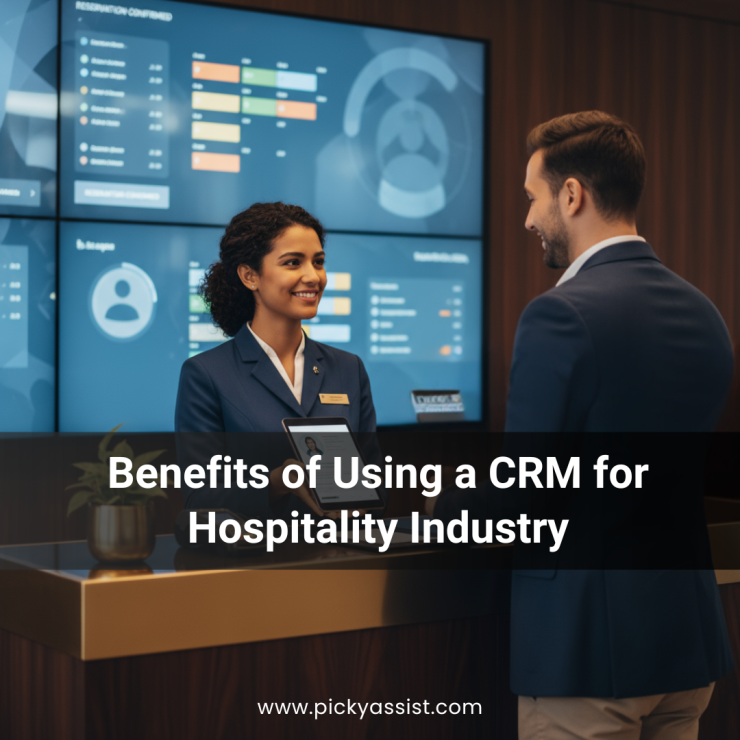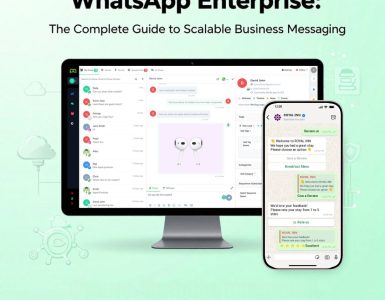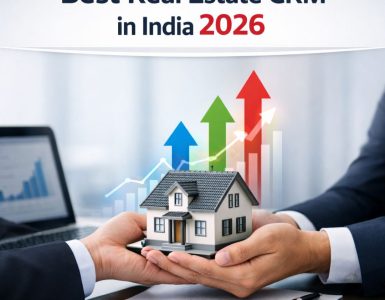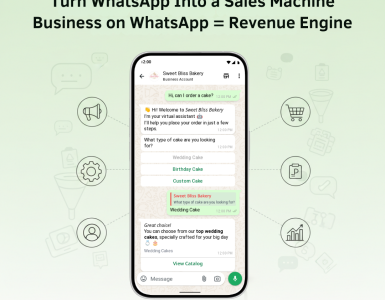Speed, personalization, and seamless guest experiences matter more than ever, CRM for hospitality industry stands out as a transformative tool. Automating guest booking processes is essential for boosting productivity, reducing errors, and increasing both guest satisfaction and revenue. Let’s explore how a hotel CRM can reshape your operations, what features matter, and why hotels that implement these systems see real results.
What Is a CRM for the Hospitality Industry?
At its core, CRM for the hospitality industry refers to systems designed specifically for hotels, resorts, and other lodging businesses to manage guest relationships throughout their lifecycle from initial booking inquiry through to post-stay engagement. Unlike generic CRM tools, these solutions are built to integrate with booking engines, Property Management Systems (PMS), and other hospitality-centric platforms. They encompass customer relationship management for hotels focusing on guest booking, preferences, communication, feedback, and retention.
Why should you Automate Guest Bookings?
Here’s where automation becomes a game changer:
| Issue Without Automation | Improvement with Automated Booking |
| Manual data entry errors, double bookings, late confirmations | Immediate confirmation messages, integrated with PMS/booking engine to eliminate double bookings |
| High operational cost, staff busy with repetitive tasks | Staff freed for guest interaction and upselling, costs reduced |
| Inconsistent guest experience, delays in communication | Pre-arrival messages, automated reminders and follow-ups ensure consistent, timely engagement |
Studies show hotels using automation reduced check-in wait times by around 50%, and another study on property sales saw 61 times ROI when they automated booking inquiries and guest communication via chatbot tools.
Key Features of a Good CRM for Hospitality Industry Software
To truly automate guest booking efficiently, certain features are non-negotiable. A robust system should include:
- Booking engine + PMS integration so that reservations feed automatically into operations.
- Automated confirmations & pre-stay communications (emails, SMS, or messaging apps) to set expectations and reduce “no-shows.”
- Guest profile & preference capture: dietary needs, room choices, food allergies used for personalised care.
- Automated upselling / cross-selling prompts: upgrades, special packages presented at booking or pre-arrival.
- Abandoned booking recovery workflows: reminders, incentives if someone did not complete a reservation.
- Multi-channel guest communication (email, WhatsApp, chatbots) to meet guests where they are.
These are all part of what you will find in many CRM features for hotels and are especially relevant when doing CRM adoption in hospitality or CRM implementation in hotels.
Use Cases: Automation Boosting Productivity
Here are some real-world examples and use cases of CRM for hotels automating guest bookings and improving productivity:
- Boutique hotels with limited staff using digital hospitality CRM are able to respond quickly to enquiries, allowing them to capture more direct bookings without hiring more front-desk staff.
- Chain hotels and resorts integrate guest booking automation across multiple properties, giving a shared profile so guests moving between properties enjoy a consistent experience, and operations are standardized.
- Event venues / banquets managing group bookings: automated workflows can collect attendee preferences, generate quotes, send confirmation, and coordinate pre-event logistics with minimal manual coordination.
- Guest retention strategies: Once a booking is made, automated post-stay follow-ups, feedback requests, or loyalty offers help bring guests back. Studies show increasing customer retention by just 5% can boost profits by up to 95%.
How to Choose CRM for your Hospitality Industry?
When selecting a system, these guidelines help pick a high-impact solution:
- Evaluate how it integrates with your existing PMS / booking engine (see “CRM for hospitality industry integration with PMS”).
- Look for tools that support abandoned booking recovery, as even a few percentage points gained here can mean thousands in revenue.
- Ensure digital hospitality CRM capabilities (chat, mobile responsiveness, real-time communication).
- Check usability: staff training, ease of use, mobile dashboards.
- Understand pricing and cost vs expected ROI case study data: how fast you recover investment through increased bookings, reduced staff load, upsells etc.
Watch Out for the Recent Market Trends in the Hospitality Industry!
To understand the scope of shift:
- The hotel CRM software market is growing rapidly, especially cloud-based deployments. In 2024, 68% of deployments were cloud-based, projected to rise to nearly 78% by 2033.
- Marketing automation applications within hotel CRM are seeing the highest CAGR (12.3%) in recent forecasts.
- One hotel (Hotel Casa Maya Cancún) achieved 61× ROI by implementing automated chat tools for bookings and guest queries.
These statistics underscore that automation in guest booking isn’t just “nice to have”—it drives measurable productivity and profitability.
How can Picky Assist help with Guest Bookings?
Picky Assist blends automation into hospitality sector in many possible ways:
- Automated chat or WhatsApp-based responses for booking enquiries, even 24/7, so no lead is lost outside business hours.
- Qualifying potential guests via chat, collecting basic documents or preferences (room type, dates) before human agents step in this shortens booking cycles.
- Securely integrating these chats into the hotel CRM so that confirmed bookings, guest profiles, and communications are all in one place.
- Tracking who responded, which channel was used, which leads converted, enabling management to monitor performance and optimize workflows.
Using Picky Assist as part of your CRM adoption in hospitality strategy can dramatically reduce manual effort and improve speed, without compromising on personalized guest experience.
Challenges & How To Overcome Them?
- Resistance to change among staff: Mitigate via training, pilot phases, ensuring that automation is seen as empowerment, not replacement.
- Data silos: Ensure your CRM for hospitality industry software connects well with point-of-sale, loyalty systems, etc.
- Guest data privacy & compliance: Ensure GDPR, PCI DSS, or local privacy laws are respected. Automation must be secure.
- Cost vs implementation time: Plan for full change management; calculate ROI from reduced labor, fewer errors, more direct bookings.
Conclusion
Automating guest booking through CRM for hospitality industry is a leap forward in hotel productivity. From reducing manual workloads, eliminating double bookings, to leveraging guest preferences and upselling intelligently; the benefits are real and measurable. When a hotel adopts digital hospitality CRM tools, the result is better operational efficiency, higher guest satisfaction, and strong revenue growth.
If you are evaluating CRM for hospitality businesses, make sure your solution offers automation, PMS integration, strong guest profiling, and supports full lifecycle communication. Tools like Picky Assist can help bridge the gap, automate chats and lead qualification, and feed that data into your hotel CRM for smooth, productive guest booking workflows.
FAQs on CRM for Hospitality Industry
1. What is CRM for the hospitality industry?
CRM for the hospitality industry refers to systems built for lodging businesses to manage guest profiles, bookings, communication, and lifecycle engagement in a way that automates and streamlines operations.
2. How does a hotel CRM improve guest experience?
By automating confirmations, reminders, and guest preferences, hotel CRM ensures consistency and personalization (e.g., remembering room types or amenities), reducing errors and improving satisfaction.
3. How to choose CRM software for hotels?
Look for PMS integration, multi-channel communication, automated workflows for booking, guest profile features, abandoned booking recovery, cost vs ROI, user-friendly interface and support.
4. How much does a hospitality CRM cost?
Cost depends on scale (number of properties), features (automation, AI-driven), deployment (cloud vs on-premise). Many cloud systems charge per room or per user per month; survey data shows cloud-based CRM adoption is increasing because of lower upfront costs.
5. Can CRM integrate with hotel PMS and booking engines?
Yes, In fact this integration is essential. Systems that sync booking, room availability, guest profile, payment status reduce errors and enable real-time updates across all systems.
6. Does CRM help with guest retention for hotels?
Absolutely. Automated post-stay engagement, loyalty program integration, feedback follow-ups all help improve repeat bookings. Data suggests guest retention gains directly impact revenue; even small retention improvements (5-10%) yield outsized returns.
7. Is CRM necessary for small boutique hotels?
Yes, boutique hotels benefit too. Though they often have fewer staff, automation saves time, ensures consistency, and lets small teams compete with larger chains by delivering personalized service without massive overhead.







Add comment